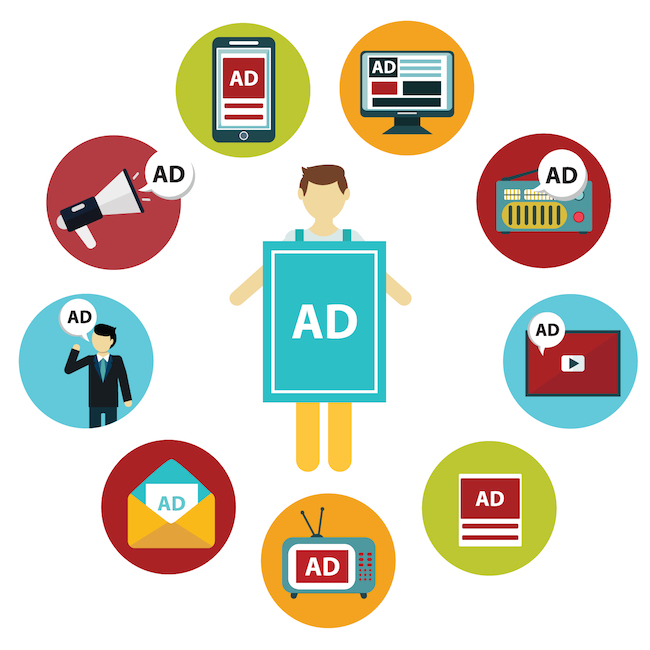Introduction
Pay-per-click (PPC) advertising is a powerful digital marketing strategy that allows businesses to drive traffic to their websites by paying for clicks on their ads. PPC ads are typically displayed at the top of search engine results pages and on social media platforms, and can be highly targeted based on factors such as location, demographics, interests, and search queries.
In this blog, we'll take a closer look at what PPC advertising is, how it works, and the benefits it can offer businesses.
Note: If you prefer to watch rather than read, we've also created a video version of this guide on our YouTube channel. In this video, our experts brings together all of the best pay-per-click advertising tips and tricks important for businesses of all sizes. Checkout the video here!

What is PPC Advertising?
PPC advertising is a type of online advertising where advertisers pay a fee each time their ad is clicked. This model is often used for search engine advertising, where advertisers bid on specific keywords that users might enter into a search engine.
PPC ads typically appear at the top of search engine results pages, above the organic search results. They are marked as ads, and often include a headline, description, and a link to a landing page where users can take action.
PPC advertising can also be used on social media platforms such as Facebook, Instagram, Twitter, and LinkedIn. In these cases, advertisers can target specific audiences based on demographics, interests, and behaviors.
How Does PPC Advertising Work?
PPC advertising works by using a bidding system. Advertisers bid on specific keywords or phrases that are relevant to their business or product. The bid represents the maximum amount they are willing to pay for a click on their ad.
Search engines and social media platforms use a complex algorithm to determine which ads to show and where to show them. The algorithm takes into account a variety of factors, including the bid amount, the relevance of the ad to the search query or user's interests, and the ad's historical performance.
When a user enters a search query or scrolls through their social media feed, the platform runs an auction to determine which ads to display. The ads that win the auction are displayed to the user, and the advertiser pays the platform each time their ad is clicked.
Benefits of PPC Advertising
Highly Targeted
PPC advertising allows businesses to target their ideal customers based on factors such as demographics, location, interests, and search queries. This means that businesses can ensure that their ads are being shown to the right people at the right time, increasing the likelihood of conversions.
Immediate Results
Unlike other digital marketing strategies such as SEO or content marketing, PPC advertising can generate results almost immediately. Once a campaign is launched, ads can be displayed and clicked on within a matter of hours.
Cost-effective
While the cost of PPC advertising can vary depending on the competition for specific keywords, it can be a very cost-effective marketing strategy. Advertisers only pay for clicks on their ads, meaning they are only paying for actual traffic to their website.
Measurable
PPC advertising is highly measurable, with detailed analytics and reporting available to track the performance of campaigns. Advertisers can see exactly how many clicks their ads received, how much they paid for each click, and how many conversions resulted from those clicks.
Flexibility
PPC advertising allows businesses to adjust their campaigns in real-time based on the performance of their ads. Advertisers can increase or decrease their bid amounts, change their targeting options, and even pause or stop a campaign altogether if it's not performing well.
Pay-per-click Advertising Strategies
Pay-per-click (PPC) advertising is a powerful digital marketing strategy that allows businesses to drive traffic to their websites by paying for clicks on their ads. However, creating and running a successful PPC campaign can be a complex process. Here are some PPC advertising strategies that businesses can use to maximize the effectiveness of their campaigns:
Conduct Thorough Keyword Research
Keyword research is a critical component of any PPC campaign. Businesses should use tools such as Google Keyword Planner or SEMrush to identify relevant and high-traffic keywords for their ads. It's important to choose keywords that are relevant to the business and have a high search volume, but are not too broad or too competitive.
Create Compelling Ad Copy
The ad copy is what will entice users to click on the ad. Ad copy should be concise, clear, and relevant to the user's search query. It's important to highlight the unique value proposition of the product or service being offered and include a clear call-to-action.
Use Targeted Landing Pages
The landing page is where users will be directed after clicking on the ad. The landing page should be relevant to the ad and provide a seamless user experience. It's important to ensure that the landing page is optimized for conversions, with a clear call-to-action and relevant information about the product or service being offered.
Utilize Ad Extensions
Ad extensions are additional pieces of information that can be included in the ad, such as phone numbers, location information, or links to specific pages on the website. Ad extensions can help improve the visibility and relevance of the ad, and can also provide additional value to the user.
Implement Effective Targeting
Targeting is a key component of any PPC campaign. Businesses can use targeting options such as location, demographics, interests, and search queries to ensure that their ads are being shown to the right audience. It's important to continually evaluate and refine targeting options to maximize the effectiveness of the campaign.
Monitor and Adjust Bids
Bidding is a critical component of PPC advertising, as it determines how often and where the ad is displayed. It's important to continually monitor and adjust bids based on the performance of the ad and the competition for specific keywords. By adjusting bids, businesses can maximize the effectiveness of their campaign while also staying within their budget.
Track and Analyze Performance
PPC campaigns should be closely monitored and analyzed to ensure that they are meeting business objectives. Businesses should track key performance indicators (KPIs) such as click-through rate (CTR), conversion rate, and cost per click (CPC) to evaluate the effectiveness of their campaign. By analyzing performance data, businesses can identify areas for improvement and make informed decisions about future campaigns.
PPC advertising can be a highly effective digital marketing strategy for businesses looking to drive traffic to their website and generate leads and sales. By utilizing these PPC advertising strategies, businesses can create effective campaigns that reach their ideal audience and achieve their marketing goals.
Conclusion
PPC advertising is a powerful digital marketing strategy that can help businesses drive traffic to their websites, increase brand awareness, and generate leads and sales. With its highly targeted and measurable approach, PPC advertising offers businesses a cost-effective way to reach their ideal customers and achieve their marketing goals.
Supercharging Your Business with Pay-Per-Click Advertising
Category: Digital Marketing

















